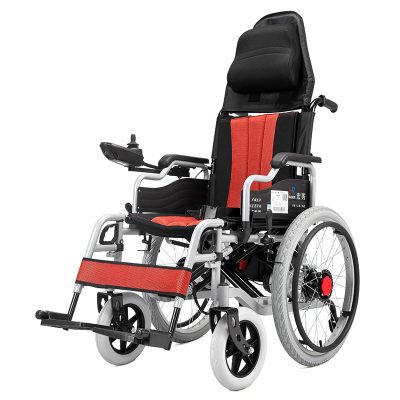Inclusive design aims to create products and environments that are accessible to everyone, regardless of their abilities. Electric wheelchairs play a significant role in advancing inclusive design principles, ensuring that individuals with mobility challenges can participate fully in society. Here’s how electric wheelchairs contribute to accessibility:
- Mobility Independence: Electric wheelchairs empower individuals with mobility impairments to navigate their environments independently. This increased mobility promotes inclusivity by reducing dependence on others for movement.
- Environmental Integration: Electric wheelchairs are designed to seamlessly integrate into various environments, including public spaces, transportation, and buildings. This integration fosters equal access for wheelchair users.
- Barrier Removal: Electric wheelchairs break down physical barriers that might impede accessibility. They enable users to overcome challenges like steps, uneven surfaces, and narrow doorways.
- Workplace Participation: In workplaces, electric wheelchairs enable employees with mobility impairments to actively participate in their job tasks, contributing to a diverse and inclusive workforce.
- Social Engagement: Electric wheelchairs facilitate social engagement by allowing users to participate in community activities, social gatherings, and events. This promotes a sense of belonging and prevents isolation.
- Education and Learning: In educational settings, electric wheelchairs ensure that students with mobility challenges can access classrooms, lecture halls, and educational resources, fostering a more inclusive learning environment.
- Public Transportation: Electric wheelchairs enhance accessibility to public transportation, enabling individuals to use buses, trains, and other forms of transit with greater ease.
- Cultural and Recreational Activities: With electric wheelchairs, individuals can enjoy cultural venues, recreational facilities, and outdoor spaces, promoting their active involvement in leisure activities.
- Personal Empowerment: The use of electric wheelchairs empowers individuals to make choices, pursue goals, and engage in activities that contribute to their personal growth and well-being.
- Universal Design Advocacy: The adoption of electric wheelchairs underscores the importance of universal design, prompting architects, designers, and policymakers to create environments that cater to diverse abilities.
By promoting accessibility and inclusivity, electric wheelchairs contribute to a more equitable society where everyone has the opportunity to lead a fulfilling life, participate in various activities, and contribute their unique perspectives to the world.














